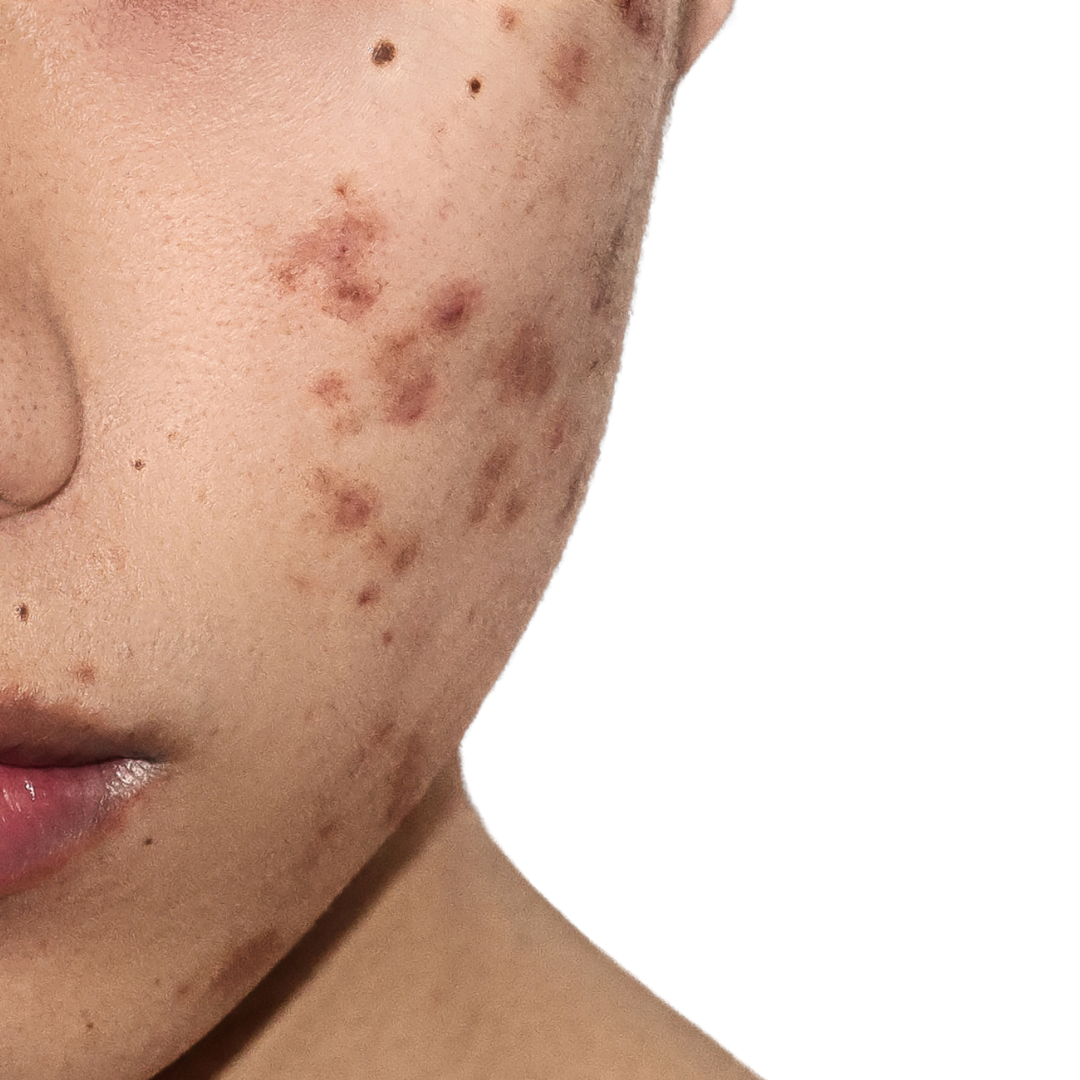What Causes Acne Scarring?
Acne scarring typically arises due to the body's attempt to heal after severe acne lesions have damaged the skin's dermis, the deeper layer beneath the surface. This damage triggers the body's natural repair process, which might lead to the formation of scars. Factors contributing to scarring include:
- Inflammation: Inflammatory acne, like cysts or nodules, can damage surrounding skin tissue, leading to scarring.
- Genetics: A person's genetic makeup can influence how their skin responds to acne and the likelihood of scarring.
- Delayed or Inadequate Treatment: Not addressing acne promptly or using harsh methods for treatment can increase the risk of scarring.
- Picking or Popping Pimples: Manipulating acne lesions can worsen inflammation and damage the skin, fostering scar formation.
- Identifying Acne Scars: Types and Appearance
- Atrophic Scars: These appear as small indentations or depressions in the skin, often referred to as "ice-pick," "boxcar," or "rolling" scars.
- Hypertrophic or Keloid Scars: Raised, firm scars that form when the body produces excess collagen during the healing process.
- Post-Inflammatory Hyperpigmentation (PIH): Dark spots or discoloration left behind after acne lesions heal.
- Management and Treatment Options
- Procedures: Dermabrasion, microneedling, chemical peels, laser therapy, and dermal fillers are options offered by dermatologists to reduce scarring.
- Professional Skincare: Dermatologist-recommended skincare routines can target specific scar types and aid in their fading.
Lifeline® Skin Care ProPlus Acne Scarring Collection
Acne scarring can be a persistent reminder of past skin struggles, impacting confidence and self-esteem. However, we offer a tailored collection designed to address these concerns effectively and it is crafted with precision, integrating powerful ingredients known for their ability to rejuvenate and repair damaged skin. Each product within this collection serves a distinct purpose in combating acne scars, offering a comprehensive regimen for clearer, smoother skin.
Dual Action Exfoliator: This Plays a vital role in this regimen. Its blend of exfoliating agents, including glycolic acid, gently removes dead skin cells and encourages cellular turnover. This process may help fade acne scars by reducing the appearance of uneven texture and discoloration.
Brightening Cleanser and Brightening Toner: This duo works in harmony to cleanse and prepare the skin for optimal absorption of subsequent treatments. Infused with antioxidants like green tea and licorice root, these products aim to brighten the skin and may diminish the appearance of dark spots and pigmentation left behind by acne scars.
ProPlus Advanced Aqueous Treatment: At the heart of Lifeline Skin Care's acne scarring collection lies the ProPlus Advanced Aqueous Treatment. Infused with potent ingredients like peptides, growth factors, and hyaluronic acid, this treatment aims to stimulate collagen production and enhance skin elasticity. The peptides aid in cellular repair, while growth factors promote skin regeneration, crucial in minimizing the appearance of acne scars.
The Science Behind the Ingredients
The efficacy of Lifeline® Skin Care ProPlus products lies in the meticulously selected ingredients known for their skin-rejuvenating properties:
Peptides and Growth Factors: These elements stimulate collagen production, aiding in skin repair and regeneration, thereby reducing the appearance of scars.
Glycolic Acid: An alpha hydroxy acid (AHA) that exfoliates the skin, promoting the shedding of dead skin cells and encouraging a smoother skin texture.
Hyaluronic Acid: Known for its ability to retain moisture, providing hydration and plumpness to the skin, improving overall texture.
Antioxidants: These ingredients work synergistically to brighten the skin and reduce pigmentation caused by acne scars.
It's crucial to consult a dermatologist or skincare professional to determine the most suitable treatment plan based on individual skin type, scar severity, and desired outcomes.
Empowering Yourself
Remember, managing acne scarring is a journey that requires patience and consistency. While treatments can significantly reduce the appearance of scars, it might take time to see noticeable improvements. Additionally, practicing good skincare habits, protecting the skin from the sun, and avoiding picking or squeezing acne lesions can aid in preventing further scarring.
Acne scarring can undoubtedly pose challenges, but with the right information and proper care, the journey towards smoother, clearer skin is achievable.
Sources: National Center for Biotechnology Information - Acne Scars: Pathogenesis, Classification and Treatment

